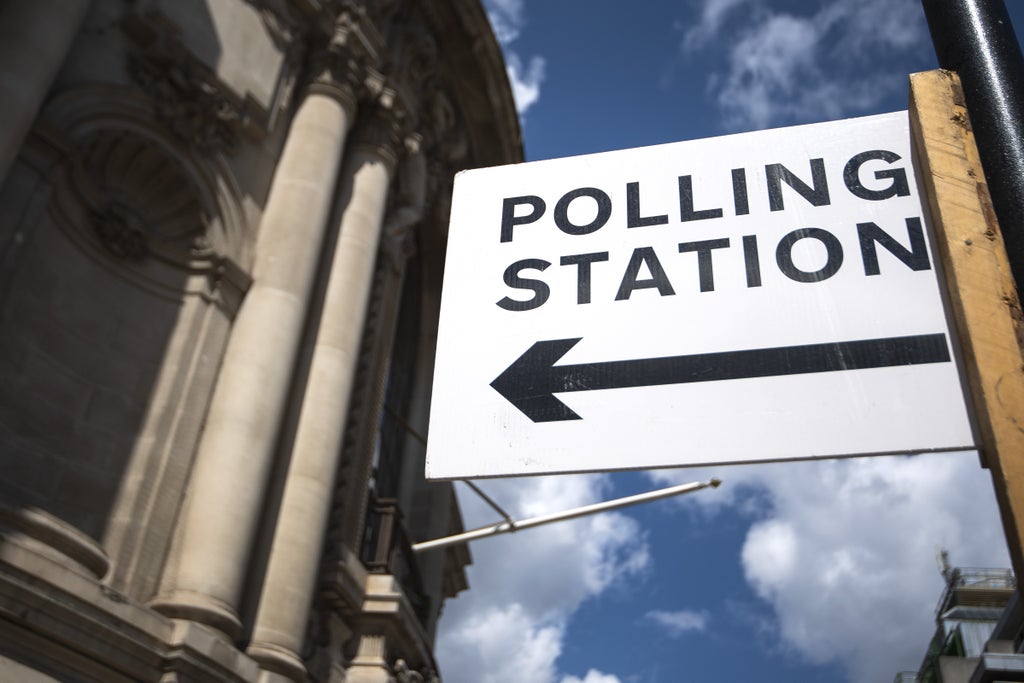
Where do May’s elections leave the main Westminster parties and what is happening in Northern Ireland?
Here we look at some of the key questions surrounding the council contests in England, Scotland and Wales, and the Stormont elections in Northern Ireland.
– What happened?
The Tories suffered a loss of more than 400 councillors in elections across England, Wales and Scotland.
Boris Johnson’s party also lost control of key authorities including Wandsworth and Westminster in London, both seized by Labour after decades of Conservative control.
The Liberal Democrats also made inroads into the “blue wall” of Tory heartlands, taking control in Woking and Somerset.
In Scotland, the Tories were pushed into third place, with Labour coming second to the dominant SNP.
In Wales, the Conservatives lost control of Monmouthshire, their only council.
– What does it mean for the Prime Minister?
The Tories had been braced for a tough set of elections, with the partygate saga over lockdown-busting parties in No 10, a grim outlook for household finances and a series of scandals involving Conservative MPs all adding to the usual difficulties facing a governing party at local elections.
The scale of the losses will inevitably lead to further pressure on Mr Johnson as MPs return to Westminster.
He will hope Tuesday’s Queen’s Speech offers the opportunity to reset his administration and focus on issues including the cost-of-living crisis, which looks set to dominate domestic politics for months to come.
The Tories will also cling to a few bright spots in the results, including taking control of Harrow in London from Labour, showing the capital is not totally lost for Mr Johnson, the man who once ran it as mayor.
– What about Labour?
Victories in Wandsworth and especially Westminster were high points, as was the success in Barnet, a borough with a large Jewish population, which suggests the party has turned a corner on the antisemitism rows of the Jeremy Corbyn years.
Gaining control of seven more councils and putting on 240 councillors represents progress, but the overall picture contained some blemishes.
The loss of Hull to the Lib Dems will be a concern while the party also lost overall control of Hastings in the south.
The party also suffered a setback as Sir Keir Starmer’s victory lap was interrupted by news that Durham Police was reopening its investigation into claims he breached lockdown rules in April 2021.
– And the Lib Dems?
Sir Ed Davey’s party has so far gained control of five councils and put on 188 seats, and he will be far happier than his Tory or Labour counterparts with the results.
The party has built on its successes in the North Shropshire and Chesham and Amersham by-elections to show it is a force to be reckoned with in former Tory shires, taking control of Somerset and Woking in Surrey, where the Conservatives had run a minority administration.
The Lib Dems will hope to continue the momentum at the Tiverton and Honiton parliamentary by-election triggered by the resignation of pornography-watching MP Neil Parish – although overturning a Conservative majority of more than 24,000 will be a tough ask.
– What about Scotland?
The SNP confirmed its status as the dominant force in Scottish politics, with Nicola Sturgeon’s party increasing its total of councillors by 22 to 453.
Scottish Labour was able to capitalise on the collapse of the Tories in Scotland by coming second overall, gaining 20 councillors to finish with 282.
Scottish Tory leader Douglas Ross’ attempts to distance himself from Boris Johnson failed to protect the party, which was down by 63 on the last local government elections five years ago, finishing with 214 councillors.
Mr Ross said: “Undoubtedly, as I am reflecting on the result in Scotland, the Prime Minister has to, and will, reflect on the result across the whole of the UK and the various parts of the country that have said very clearly they are unhappy with the Prime Minister and his actions.”
– And Wales?
There were gains for Labour, Plaid Cymru and the Liberal Democrats at the expense of the Tories.
Welsh Conservative leader Andrew RT Davies appeared to blame the problems in Westminster for the party’s difficulties.
“We have a strong Welsh Conservative brand, but we went into these elections with a difficult national picture and it appears that has had an impact,” he said.
“We have to build on that strong Welsh Conservative brand in the coming months.”
– Northern Ireland has voted for its new assembly, what’s happened there?
Sinn Fein made history by becoming the largest party at Stormont.
The republican party also won the battle for largest vote share with 29% of first preference votes, compared with 21.3% for the DUP, 13.5% for Alliance, 11.2% for the UUP and 9.1% for the SDLP.
A unionist party has always taken the most seats in the Assembly, and previously the Stormont Parliament, since the formation of the state in 1921.
Victory for Sinn Fein adds to the constitutional headaches faced by the Westminster government, which is already locked in a dispute with the DUP and the European Union over Northern Ireland’s post-Brexit trading arrangements.
The DUP has said it will refuse to join a new power-sharing executive until the issues it has with the Northern Ireland Protocol have been resolved.







